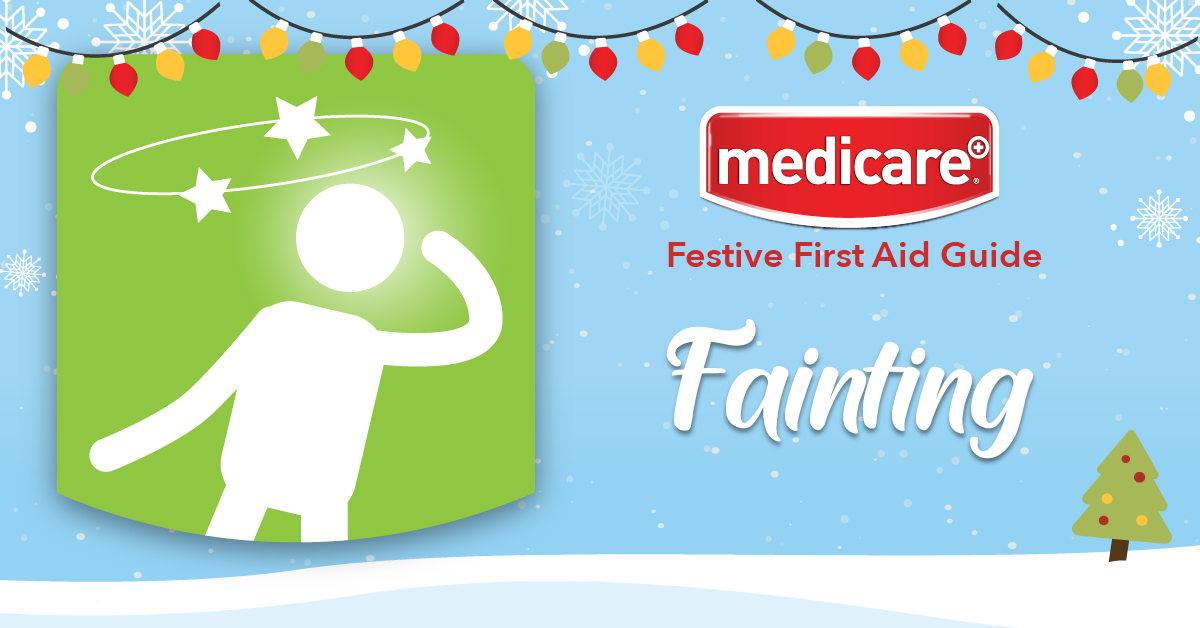Headlines
- Gentle Daily Ear Care with Medicare Ear Spray
- Breathe Easy with Medicare Nasal Spray
- Fleming Medical Renews Support for Irish Heart Foundation’s “Before Damage is Done” Campaign with over €25K Donation
- First Response for Minor Burns: Why MD508 Medicare Burn Spray Belongs in Every Medicine Cabinet
- Step Smart: Introducing the New Medicare® Footcare Range
The 12 Injuries of Christmas - Fainting
09 December 2019

Fainting is typically caused by a lack of oxygenated blood reaching the brain and can be described as a sudden temporary loss of consciousness. There may not be any warning symptoms when you suffer a stroke but some people recall feeling sick and confused, lightheaded, blurred vision and fast, deep breathing.
Before you faint, you are likely to feel weak and unsteady before eventually passing out for a short period of time.
Causes of Fainting
There are several reasons behind fainting, such as:
- Emotional stress
- Pain
- Lack of food
- Pregnancy
- Exhaustion
- Fear
- Prolonged standing
If someone is feeling faint then you should advise them to lie down on the floor and raise their legs higher than their head. This position will help to improve blood flow back to the brain.
If someone around you has fainted and has not recovered after two minutes, then you should place them in the recovery position and closely monitor their airways and breathing. Once they are in the recovery position, you should call for emergency medical help. Be prepared to resuscitate the patient if they stop breathing.
If you have suffered a fainting episode, there are things that you can do to avoid it happening again, such as avoiding triggers like stress and hot/crowded environments. Spotting the warning signs beforehand, so that you can lie down and increase blood flow to the brain will help to prevent further fainting incidents.

 Fleming Medical UK
Fleming Medical UK
